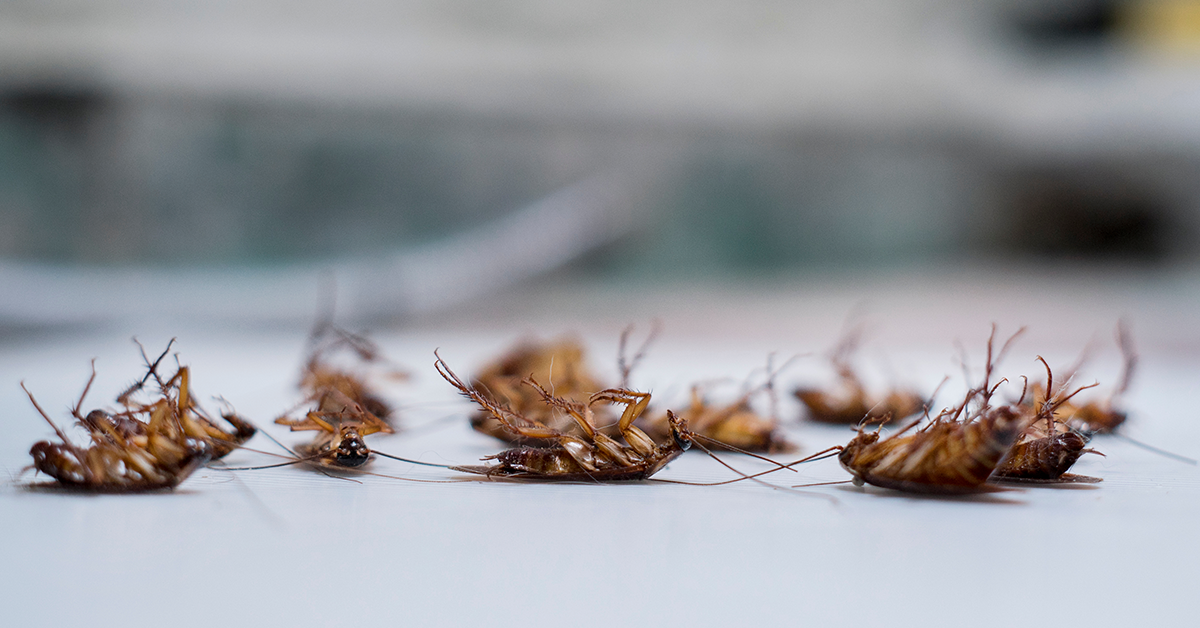
As unreal as it sounds, cockroach allergy can be diagnosed by doctors. This allergy has lasted for as long as these pests have been around. While it is common knowledge that cockroaches are the means of spreading various bacteria, very few people realize that they can be allergens too!
The allergens in cockroach allergy are the proteins found inside these pests. These allergens trigger underlying diseases such as allergic rhinitis and asthma in people exposed to these enzymes. The majority of the causes of cockroach allergies come from their droppings known as frass and contain allergens similar to dust mite allergens.
Although these allergens are heavy, they can be airborne by cleaning actions such as sweeping or vacuuming. These airborne particles then enter the mucous membranes of people’s eyes, nose, and lungs and start a series of allergic reactions. These reactions induce the production of allergic antibodies, causing the normal person to develop an allergy to cockroaches.
Cockroaches could often trigger already existing allergies, such as asthma. Among thousands of species of cockroaches, the American cockroach (known as Periplaneta americana in the scientific world) and German cockroach (known as Blattella germanica in the scientific world) are renowned for causing cockroach allergies.
Some cockroach species are dependent on humans for survival, while others generally feed on trash, pet food, and scraps of paper. According to a research study by The National Pest Management Association, around 63% of residencies in the United States contain cockroach allergens.
The symptoms of cockroach allergies are the same as those of any other common allergies, such as mites, dust, or seasonal allergies. The easiest way to differentiate between cockroach allergies and those caused by other allergens is to look out for whether your allergies occur in the absence of dust or mites or the symptoms last beyond the period of seasonal allergies. The following are the symptoms of cockroach allergies.
Since the symptoms of a cockroach allergy overlap with those of any common allergy, it can often be difficult to get a diagnosis. It is best to visit a doctor who can get you an official diagnosis for your cockroach allergy. The first step in this diagnosis involves inquiries about your living conditions to see if cockroaches are likely to inhabit your living area.
To be certain, an allergy test is recommended, which may be a blood test or a skin patch test. The blood test tests for any active antibody IgE in the body, whereas the patch test looks for any adverse skin reaction to cockroaches.
Like every other allergy, the severity of cockroach allergy varies from person to person. We suggest visiting the doctor if over-the-counter allergy medications are not helpful. If your symptoms get severe in the presence of cockroaches, such as anaphylaxis, swollen throat, or dizziness, you should seek emergency medical help.
The key to avoiding cockroach allergy is to avoid exposure to cockroaches and their droppings. There are numerous changes you can make to reduce the number of these unwanted pests in your house.
The first and the most important step is to limit your exposure to cockroaches as much as possible. This will not only reduce your current symptoms but also prevent any further aggravation of your symptoms in the future. While your doctor knows best about which medicine to prescribe you, given the severity of your condition, we have compiled a list of over-the-counter medications to ease your symptoms.
Available as pills, nose sprays, and liquids, antihistamines bring about relief from sneezing and itching in the nose and eyes. They reduce the likelihood of a stuffy and runny nose.
These are available as nose sprays, which help with allergic rhinitis by blocking adverse reactions.
Available as pills, liquids, nasal sprays, or drops, their minimal use can provide relief from the stuffiness of the nose.
This nasal spray blocks the release of chemicals that cause allergic symptoms.
Similar to cromolyn sodium, these are available as sprays, which block the chemical messengers required to carry out the allergic reaction.
While these medications provide much-needed relief, they also have side effects. To practice safe medicine, it is always best to visit a doctor.
See Also: Banana Allergy: Symptoms and Risk Factors
Cockroach allergies are more common than you would assume. Many people confuse cockroach allergy symptoms for seasonal allergies and take OTC medications to feel better. While this works for most people who are allergic to cockroaches, it is not a solution for everyone. One of the core requirements to tend to your allergy is to figure out the allergen. Cockroaches can be a more common and severe cause of asthma in young children than some people realize.
Since cockroaches have proven to be a common trigger for asthma, making sure that your house remains clear of them, whether you have allergies, asthma, or both, can help. Be mindful of our tips to prevent cockroaches from entering your house and keep yourself and your family safe!